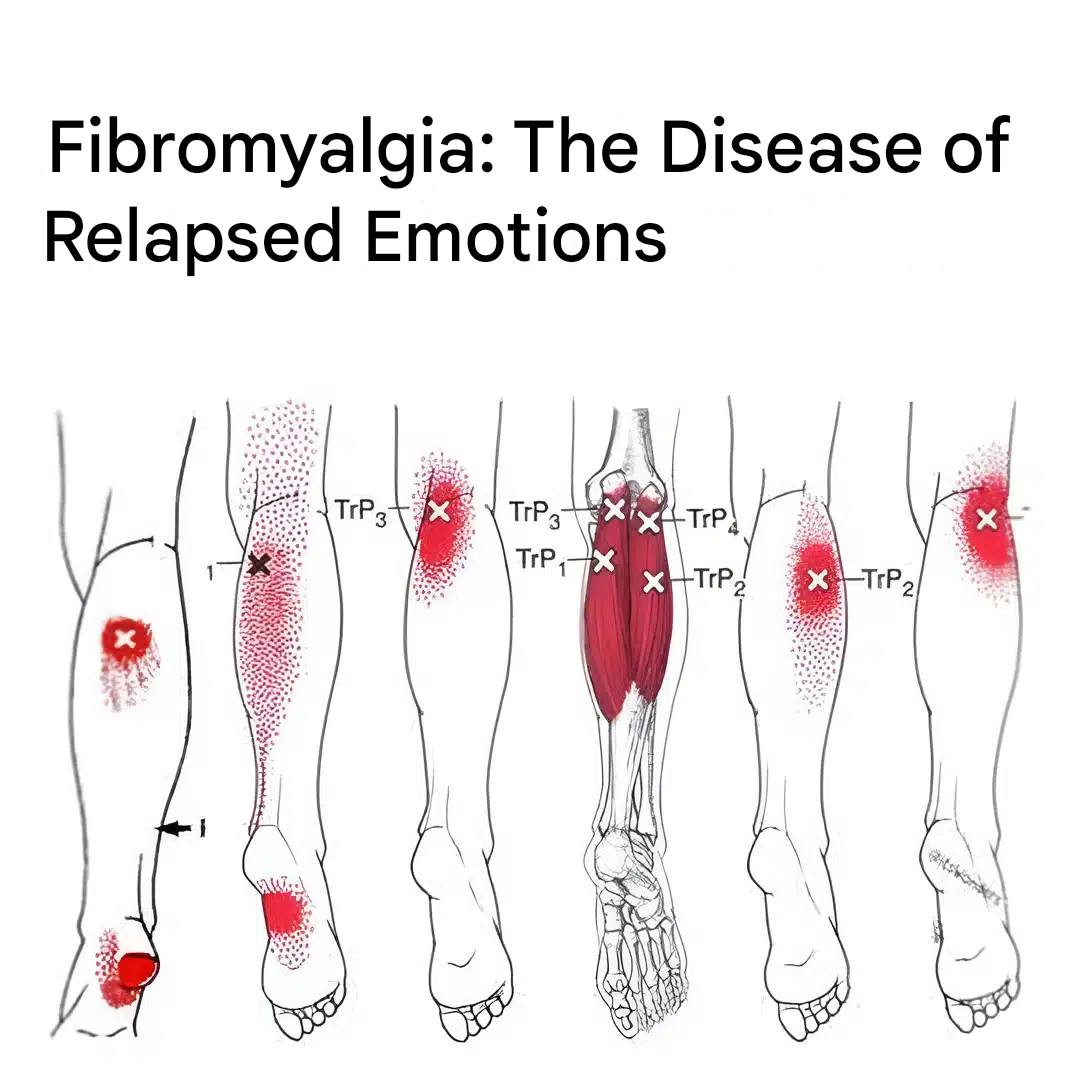
Fibromyalgia is often described as an invisible illness—one that brings widespread pain, fatigue, and cognitive difficulties. But beyond the physical symptoms, there’s another layer that often goes unnoticed: the emotional toll.
More and more research is revealing a significant link between fibromyalgia and emotional well-being, suggesting that the mind and body are more deeply connected than we once thought.
Let’s take a closer look at how emotions and fibromyalgia intertwine and why understanding this relationship could lead to better healing.
What Is Fibromyalgia?
Fibromyalgia is a chronic condition that primarily causes:
-
Widespread muscle and joint pain
-
Persistent fatigue
-
Sleep disturbances
-
Cognitive difficulties, often referred to as “fibro fog” (trouble concentrating or remembering)
Although its exact cause remains unknown, experts believe fibromyalgia involves a combination of genetic, environmental, and psychological factors. It affects how the brain processes pain signals, amplifying sensations that others might not notice.
But fibromyalgia is more than just physical discomfort—it’s a complex condition with emotional dimensions that are just as important to address.
The Emotional Side of Fibromyalgia
Many people with fibromyalgia report feeling trapped in a cycle of physical and emotional pain. Living with constant discomfort can naturally lead to emotional distress, such as:
-
Anxiety
-
Depression
-
Feelings of hopelessness
-
Irritability
-
Emotional exhaustion
It’s important to note that these emotional challenges are not simply a reaction to the pain. In many cases, emotions and fibromyalgia seem to fuel each other. Stress, sadness, and anxiety can actually make physical symptoms worse, creating a vicious cycle that can be hard to break.
How Emotions Influence Physical Symptoms
You’ve probably heard the phrase “mind over matter,” but with fibromyalgia, it’s not about positive thinking magically curing pain.
Instead, it’s about recognizing how emotional stress impacts the nervous system.
Stress causes the body to release chemicals like cortisol and adrenaline. In a healthy individual, these chemicals help in emergency “fight-or-flight” situations. But for someone with fibromyalgia, the stress response can stay activated far longer than it should, keeping the body in a heightened state of tension and sensitivity.
This can lead to:
-
Increased pain perception
-
Muscle stiffness
-
Sleep disruption
-
Fatigue
In other words, emotional stress doesn’t just make you feel bad mentally—it can physically worsen your fibromyalgia symptoms.
Past Trauma and Fibromyalgia
Some researchers believe that unresolved emotional trauma may play a role in the development or worsening of fibromyalgia.
Studies have found that many people living with this condition have a history of emotional, physical, or psychological trauma.
This doesn’t mean that fibromyalgia is “all in your head”—far from it. But it does suggest that past emotional wounds could leave lasting imprints on the body’s stress response system, making someone more vulnerable to chronic pain conditions.
Understanding and addressing past trauma could be a crucial part of managing fibromyalgia symptoms more effectively.
Strategies for Managing the Emotional Impact
Dealing with the emotional side of fibromyalgia is just as important as managing the physical symptoms.
Here are some approaches that can help:
-
Cognitive Behavioral Therapy (CBT):
This form of therapy helps you identify and challenge negative thought patterns that might be amplifying your pain and emotional distress. -
Stress Management Techniques:
Mindfulness, deep breathing exercises, and meditation can help calm the nervous system and reduce stress-related flare-ups. -
Support Groups:
Connecting with others who understand what you’re going through can ease feelings of isolation and provide practical tips for coping. -
Physical Activity:
Gentle exercises like yoga, swimming, or walking can help reduce stress, boost mood, and even lessen physical symptoms over time. -
Medication and Professional Support:
In some cases, medications that target both pain and mood (such as antidepressants or anti-anxiety medications) may be helpful. Always consult a healthcare provider for a tailored treatment plan.
The Power of Self-Compassion
Living with fibromyalgia requires enormous emotional strength. It’s easy to get frustrated with your body or to feel guilty about the things you can no longer do. But self-compassion is a crucial part of healing.
Being kind to yourself, acknowledging your struggles without judgment, and recognizing your resilience can have a powerful effect—not just emotionally, but physically too.
You are not lazy. You are not imagining your symptoms. You are dealing with a complex, challenging condition that affects every part of your life.
And you deserve support, understanding, and care—both from yourself and from others.
Final Thoughts
The connection between fibromyalgia and emotions is profound and real.
By recognizing and addressing the emotional dimensions of this condition, we open the door to more effective, holistic healing.
Physical treatments alone may not be enough—but when combined with emotional care, the path forward becomes a little clearer.
Healing from fibromyalgia is not just about managing pain—it’s about nurturing the mind and body together.
Remember: You are stronger than you think, and every step you take toward healing—emotionally and physically—is a victory worth celebrating.





